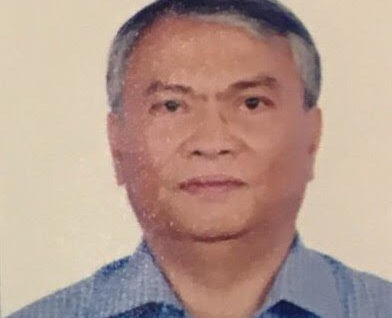Dismissed Cotabato Vice-Governor Gregorio Ipong has asked the Sandiganbayan to throw out his charges for the alleged misuse of P9.6 million in pork barrel funds when he was 2nd district representative in 2007.
In a 13-page motion for judicial determination of probable cause, Ipong told the court’s Third Division that there was no basis for the Office of the Ombudsman to indict him for graft and malversation.
He said the court should not order his arrest and hold a trial because the Ombudsman failed to establish the elements of the graft and malversation offenses.
State prosecutors accused Ipong of disregarding appropriation and procurement laws when he tapped the unqualified Aaron Foundation Philippines, Inc. (AFPI) to implement his livelihood projects.
Ipong allegedly conspired with state-run Technology and Livelihood Resource Center to process the release of his Priority Development Assistance Fund proceeds. The projects turned out to be nonexistent.
The former lawmaker, however, claimed he was not responsible for “accrediting” AFPI as he merely “recommended” the non-government organization. He said his only part was to earmark the PDAF funds and select the implementing government agency.
“TLRC was clearly not duty-bound to accept his selection/endorsement,” the motion read.
He washed his hands off the implementation stage of the livelihood projects, saying his role was limited to recommendatory powers at most.
“There is no need to exert any influence on the part of accused Ipong since the implementation and monitoring of my project will be the responsibility, primarily of TLRC, and AFPI without intervention from petitioner after he has identified the project and conduit NGO,” he said.
No control of his funds
Ipong also said he could not be held liable for malversation because he did not exercise custody and control of his PDAF funds. He said the Department of Budget and Management directly released the funds to TLRC and he “merely appointed” AFPI for the project.
He added that his endorsement of AFPI does not constitute “criminal inducement” for the misuse of the funds and does not “immediately make him liable as a conspirator” in the alleged scheme.
Ipong also argued that he cannot be faulted for choosing the NGO without public bidding because it was not yet required when the transactions took place from March to April 2007. The Commission on Audit issued its Circular No. 2007-001 six months later on Oct. 25, 2007.
He argued the same goes for the requirement of prior authorization through an appropriations law before an NGO is contracted. The Government Procurement Policy Board Resolution No. 12-2007 was only approved on June 29, 2007, while the revised implementing rules of the Government Procurement Reform Act only took effect five years later on Sept. 4, 2012.
Denial of due process
Ipong claimed he was denied due process because the complaint was initiated by the Ombudsman’s Field Investigation Office for preliminary investigation also by the Office of the Ombudsman.
“The judge [Ombudsman] decided on the basis of the criminal complaint filed by one of its own offices. It is inconceivable that the judge… would decide otherwise when the complainant is its own office. Partiality is manifest,” he said.
The motion added that the complainant should have been someone with personal knowledge of the transactions and not the FIO, which “made its own suppositions of conclusions” based on the documents gathered during investigation./rga
